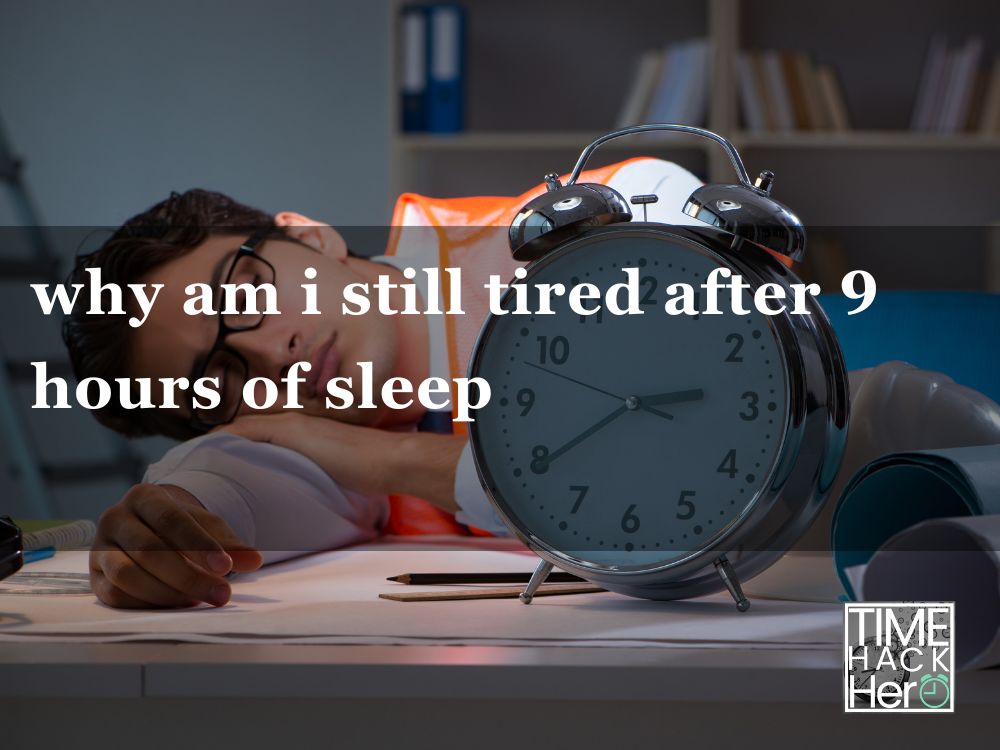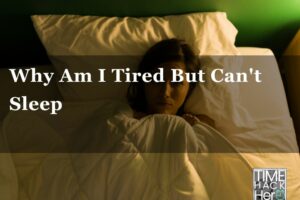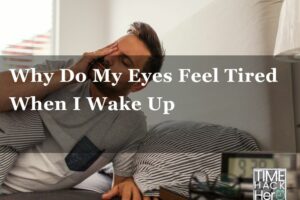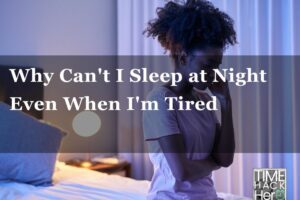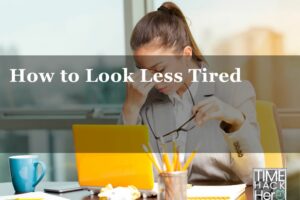Getting a full 9 hours of sleep is more than the recommended 7-8 hours for most adults. So feeling fatigued, groggy, and sleep deprived after spending that much time in bed is quite concerning. While the exact sleep need varies between individuals, ongoing tiredness after 9 hours likely indicates disrupted sleep or an underlying health issue.
If you regularly feel unrested even after devoting sufficient time to sleep, identifying potential causes is key to finding a solution. With targeted lifestyle changes and treatment of any medical conditions involved, you can enjoy waking up feeling refreshed and energized.
Table of Contents
Is This Normal?
It’s perfectly normal to feel a bit sleepy when you first wake up in the morning. As you start moving around and get exposure to daylight, you should feel alertness set in within an hour or so. But if you still feel drained, yawn excessively, and struggle to get going after 9 hours in bed, this is likely abnormal.
Experts suggest that regularly waking up tired even after 9 hours of shuteye may signify:
- An undiagnosed sleep disorder
- Effects of a chronic health condition
- Environmental factors impairing sleep
- Poor sleep practices and habits
- High stress levels or anxiety issues
Occasionally feeling sluggish after 9 hours of sleep is not worrisome. But ongoing fatigue or lack of energy daily after this length of time in bed indicates an underlying problem. Consulting a doctor can help identify and treat the issue.
11 Reasons You May Still Be Tired After 9 Hours of Sleep
There are several possible reasons you don’t feel rested after 9 hours in bed:
1. Sleep Apnea
This disorder causes breathing to stop and start, resulting in restless, fragmented sleep and lack of rejuvenating deep sleep and REM sleep.
2. Restless Leg Syndrome
The irresistible urge to move the legs disrupts sleep, significantly reducing sleep quality.
3. Chronic Pain
Conditions like arthritis, nerve pain, back pain, etc. impair ability to fall and stay asleep.
4. Medications
Antihistamines, beta blockers, steroids, antidepressants, and stimulants can affect sleep cycles and depth.
5. Poor Sleep Habits
Going to bed too late, staying in bed when unable to sleep, using phones/laptops before bed, uncomfortable sleep environment, and other poor sleep hygiene impair sleep.
6. Mental Health Issues
Insomnia, anxiety, depression, PTSD, and stress often manifest with racing thoughts and trouble sleeping.
7. Hormonal Changes
Shifts during menstruation, menopause, pregnancy, and andropause can disrupt regular sleep-wake cycles.
8. GERD
Heartburn from acid reflux can wake you up in pain during the night.
9. Hyperthyroidism
An overactive thyroid increases metabolism, making it hard to stay asleep.
10. Sleep Deficiency
If you’ve accumulated a serious sleep debt, just one night of 9 hours may be insufficient to recover fully.
11. Aging
As we age, sleep quality and time spent in deep, restorative sleep declines.
Effects of Feeling Tired Even After 9 Hours of Sleep
Being fatigued and lacking energy despite spending ample time in bed can impact you negatively:
- Difficulty concentrating, focusing, learning new information
- Increased irritability and quickness to anger
- Higher risk of headaches and migraines
- Weaker immunity, frequent colds and infections
- Impaired motor skills, slower reaction time, reduced athletic performance
- Dangerous drowsy driving, increased risk of accidents
- Increased injury risk if coordination and reflexes are dulled
- Overeating, cravings for sugary and fatty foods
- Anxiety, depression, mood disorders may worsen
Long term, ongoing fatigue from inadequate sleep can increase obesity, heart disease, high blood pressure, and stroke risks.
Ways to Stop Feeling Tired After 9 Hours of Sleep
If you regularly wake up fatigued even after 9 hours in bed, try these troubleshooting tips:
- Check for underlying conditions – Get evaluated for disorders like thyroid abnormalities, anemia, etc. which can impair sleep.
- Track sleep patterns – Use a sleep diary or app to pinpoint issues with sleep timing, environment, habits, etc.
- Optimize sleep environment – Ensure room is cool, quiet, and dark enough. Use blackout curtains, white noise machine, cooling mattress, etc.
- Avoid electronics before bed – Don’t use phones, tablets, TV, computers for 1-2 hours before bed, as blue light disrupts melatonin release.
- Limit naps – Daytime naps after 3 pm can interfere with nighttime sleep drive and quality.
- Exercise regularly earlier in the day – Getting 30 mins of activity first thing in the morning helps regulate sleep cycles.
- Establish a pre-bed wind down routine – Unwind by reading, gentle yoga, bath, or light music to transition to sleep.
- Manage stress and anxiety – Try counseling, cognitive behavioral therapy (CBT), meditation, etc. to lower stress affecting sleep.
- Get checked for sleep apnea – This underdiagnosed disorder causes restless, non-rejuvenating sleep.
- Avoid alcohol and caffeine – Don’t consume coffee, tea, or alcohol for 3-4 hours before bedtime.
When to See a Doctor
Consult your healthcare provider if you regularly feel tired after long or adequate nighttime sleep. Also seek medical advice for:
- Difficulty falling or staying asleep most nights
- Chronic daytime fatigue interfering with work/life
- Frequent headaches upon waking
- Loud snoring or breathing cessations
- Tingling or crawling legs sensations at night
- Unwanted napping or falling asleep during the day
A doctor can check for obesity, thyroid dysfunction, anemia, sleep apnea, depression, and other treatable causes of fatigue. Prompt diagnosis of sleep disorders or health issues is key to restoring your energy.
Conclusion
It’s not uncommon to feel a bit sleepy when you first wake up. But ongoing fatigue after 9 hours of time devoted to sleeping is not normal and likely indicates an underlying issue. Failure to pinpoint and address causes of inadequate sleep can lead to impairments across mental, physical, and emotional health. Work with your doctor to identify any factors or health conditions that could be affecting your sleep. With targeted lifestyle changes and treatment, you can resolve sleep deficiencies and wake up feeling truly recharged each day.
Frequently Asked Questions
Is it normal to be tired after 9 hours of sleep?
It is common to feel somewhat drowsy immediately upon waking up. But persistent fatigue, lack of energy, and brain fog throughout the day after 9 hours of shuteye is not normal and suggests disrupted sleep or an underlying medical issue.
How many hours of sleep do you need to not feel tired?
Most adults require 7-9 hours of uninterrupted sleep per night to feel rested during the day. Individual needs vary though – some feel their best with 7 hours while others need 9. The key is getting sufficient continuous sleep.
What diseases cause constant tiredness even after sleeping?
Sleep apnea, narcolepsy, anemia, hypothyroidism, diabetes, asthma, chronic fatigue syndrome, fibromyalgia, depression, and autoimmune diseases can all impair sleep quality and cause ongoing tiredness.
Is it OK to need more than 8 hours of sleep?
Yes, it’s perfectly fine to need 9 or even 10 hours of sleep per night, as long as you are able to get that amount on a regular daily basis. The key is getting uninterrupted, high-quality sleep during the time you devote to rest.
How can I stop waking up exhausted every day?
Improving sleep hygiene, optimizing your sleep environment, managing stress, avoiding sleep disruptors like alcohol, establishing a relaxing pre-bed routine, screening for underlying health issues, and sticking to a regular sleep schedule can help minimize fatigue.

